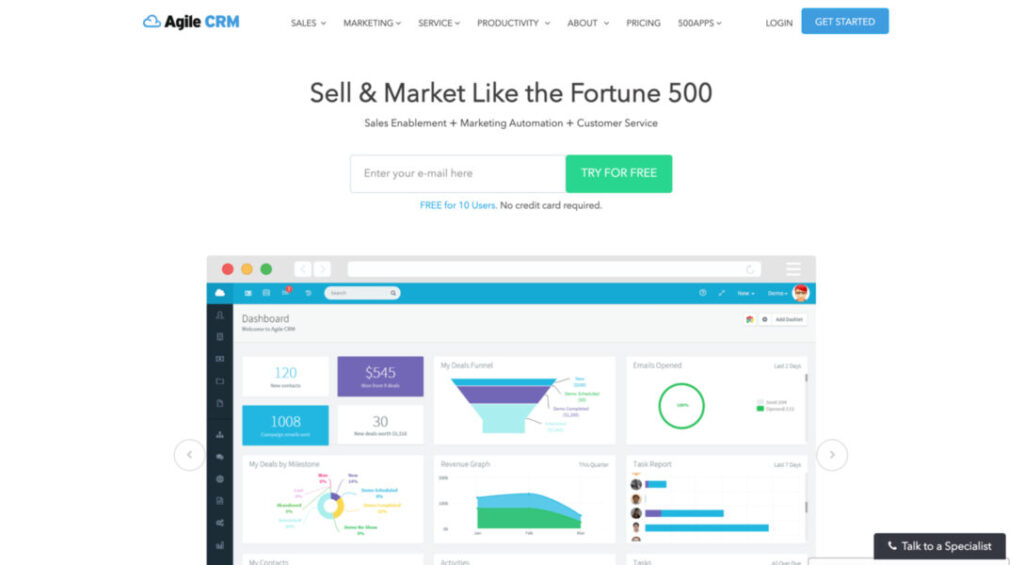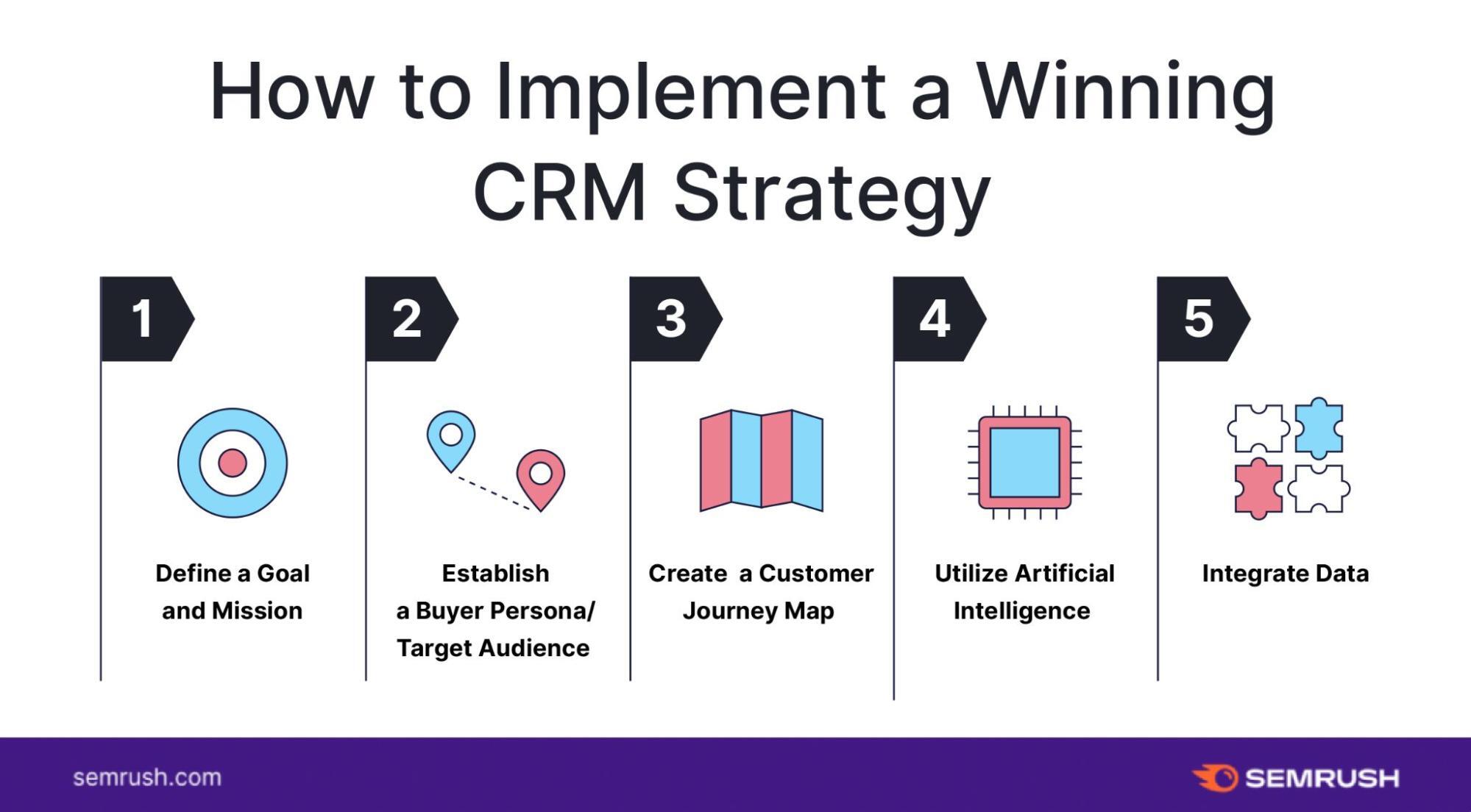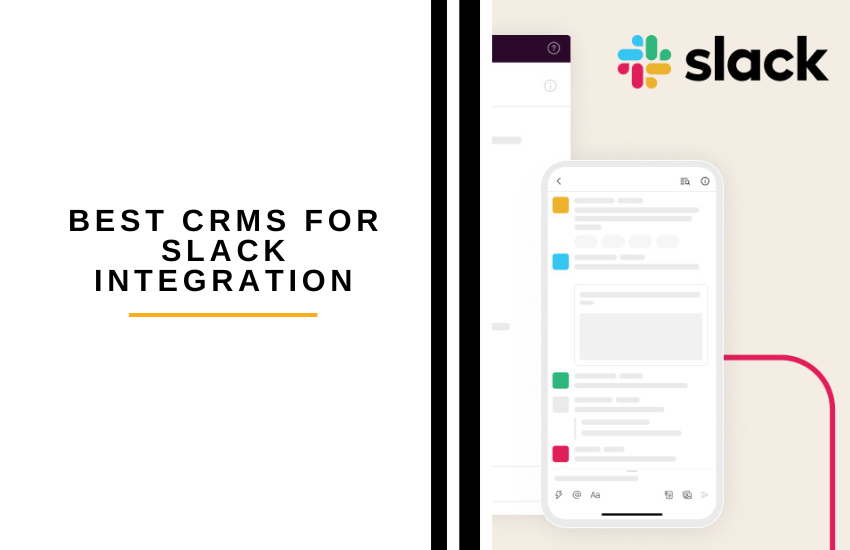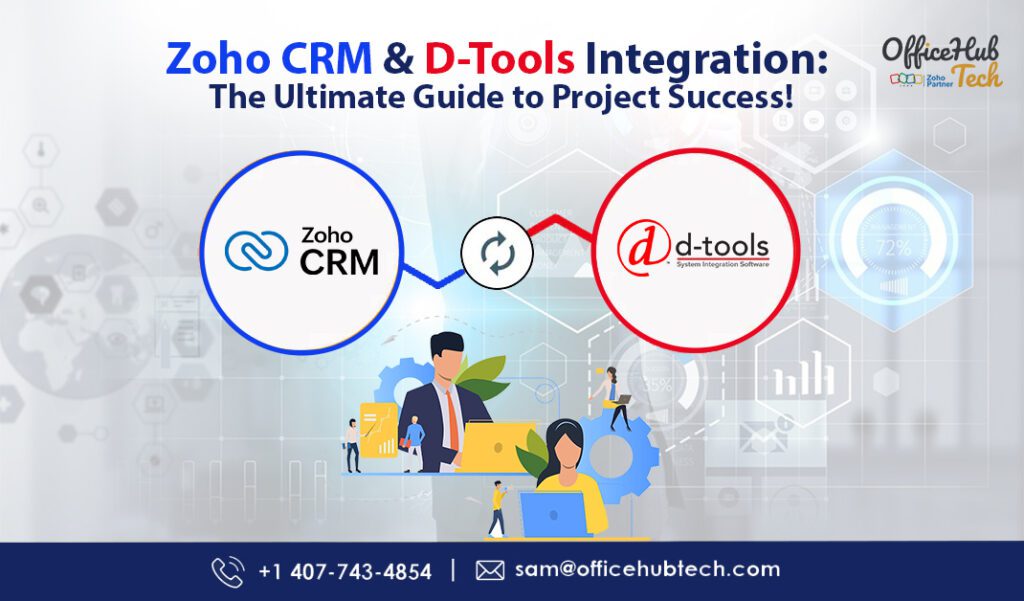Supercharge Your Shopify Plus Store: A Comprehensive Guide to CRM Integration

Supercharge Your Shopify Plus Store: A Comprehensive Guide to CRM Integration
In the ever-evolving landscape of e-commerce, staying ahead of the curve requires more than just a great product and a user-friendly website. It demands a deep understanding of your customers, personalized experiences, and efficient operational workflows. This is where Customer Relationship Management (CRM) integration with Shopify Plus comes into play. This guide dives deep into the world of CRM integration, specifically focusing on the powerful synergy it creates with Shopify Plus, equipping you with the knowledge to transform your e-commerce business.
Understanding the Power of CRM and Shopify Plus
Before we get our hands dirty with the technicalities, let’s lay down the foundation. What exactly is a CRM, and why is it so crucial for businesses like yours? A CRM is essentially a centralized system designed to manage all your interactions with current and potential customers. It’s the hub where you store customer data, track interactions, and personalize communications. Think of it as the brain of your customer-centric strategy.
Shopify Plus, on the other hand, is the enterprise-grade e-commerce platform designed for high-volume businesses. It’s the big brother of Shopify, offering more customization options, advanced features, and dedicated support. It’s built to handle the complexities of scaling a large e-commerce operation.
The magic happens when you connect these two powerhouses. CRM integration with Shopify Plus creates a seamless flow of data, allowing you to:
- Gain a 360-degree view of your customers: See everything from their browsing history and purchase behavior to their support tickets and marketing interactions.
- Personalize the customer experience: Tailor product recommendations, marketing messages, and website content based on individual customer preferences and behaviors.
- Automate your marketing efforts: Trigger automated email campaigns, SMS messages, and other marketing activities based on customer actions and lifecycle stages.
- Improve sales team efficiency: Equip your sales team with the information they need to close deals faster and provide exceptional customer service.
- Optimize your operations: Streamline order fulfillment, inventory management, and customer service processes.
In essence, CRM integration with Shopify Plus empowers you to build stronger customer relationships, drive more sales, and ultimately, grow your business.
Benefits of CRM Integration with Shopify Plus: The Key Advantages
Let’s delve deeper into the specific advantages that CRM integration brings to your Shopify Plus store. The benefits are multifaceted, touching every aspect of your business, from marketing and sales to customer service and operations.
Enhanced Customer Understanding
One of the most significant benefits is the ability to gain a deeper understanding of your customers. By integrating your CRM with Shopify Plus, you can:
- Access comprehensive customer profiles: Combine Shopify Plus data (purchase history, browsing behavior, etc.) with CRM data (support tickets, email interactions, etc.) to create a complete picture of each customer.
- Segment your audience effectively: Group customers based on various criteria (e.g., purchase history, demographics, engagement level) to create targeted marketing campaigns.
- Identify customer trends: Analyze data to uncover patterns and insights into customer behavior, preferences, and needs.
Personalized Customer Experiences
Personalization is no longer a luxury; it’s a necessity. CRM integration allows you to deliver highly personalized experiences across all touchpoints:
- Personalized product recommendations: Suggest products based on a customer’s past purchases, browsing history, and preferences.
- Targeted email marketing: Send personalized email campaigns based on customer segments, lifecycle stages, and behaviors.
- Customized website content: Display tailored content and offers on your website based on individual customer profiles.
- Proactive customer service: Anticipate customer needs and provide proactive support based on their past interactions.
Improved Marketing Automation
Automate your marketing efforts to save time, improve efficiency, and drive conversions:
- Automated email workflows: Set up automated email campaigns to nurture leads, onboard new customers, and re-engage inactive customers.
- Triggered email campaigns: Send targeted emails based on specific customer actions (e.g., abandoned cart, product viewed).
- Lead scoring: Automatically score leads based on their engagement and behavior to prioritize your sales efforts.
- Personalized SMS marketing: Send personalized text messages to customers for order updates, promotional offers, and customer service.
Streamlined Sales Processes
Empower your sales team with the tools and information they need to close deals faster and provide exceptional customer service:
- Lead management: Track leads, manage opportunities, and nurture prospects through the sales pipeline.
- Sales forecasting: Gain insights into future sales performance based on CRM data.
- Sales reporting and analytics: Track key sales metrics and measure the effectiveness of your sales efforts.
- Improved customer service: Provide your sales team with access to customer data, history, and interactions.
Operational Efficiency
Improve the efficiency of your operations by:
- Automating order fulfillment: Automate order processing and fulfillment workflows.
- Improving inventory management: Synchronize inventory data between Shopify Plus and your CRM.
- Enhancing customer service: Route customer inquiries to the appropriate support agents and provide faster response times.
- Data-driven decision making: Utilize data from your CRM to inform your business decisions and optimize operations.
Choosing the Right CRM for Your Shopify Plus Store
Selecting the right CRM is a crucial step in your integration journey. The best CRM for your business will depend on your specific needs, budget, and technical capabilities. Here are some popular CRM options that integrate seamlessly with Shopify Plus:
HubSpot CRM
HubSpot is a popular choice for businesses of all sizes, offering a comprehensive suite of marketing, sales, and customer service tools. Its free CRM is a great starting point, and its paid plans offer more advanced features. HubSpot’s integration with Shopify Plus is robust, allowing you to sync customer data, track marketing performance, and automate marketing workflows. It’s known for its user-friendly interface and ease of use, making it a great choice for businesses that are new to CRM.
Salesforce Sales Cloud
Salesforce is a leading CRM platform, known for its powerful features and customization options. It’s a good fit for larger businesses with complex sales processes. Salesforce offers a deep integration with Shopify Plus, providing advanced features such as sales forecasting, lead management, and comprehensive reporting. Salesforce is a more complex platform than HubSpot, so it may require more training and expertise to implement and manage.
Zoho CRM
Zoho CRM is a cost-effective CRM solution that offers a wide range of features. It’s a good option for small and medium-sized businesses. Zoho CRM’s integration with Shopify Plus allows you to sync customer data, track sales, and automate marketing workflows. Zoho CRM is known for its affordability and ease of use, making it a great choice for businesses on a budget.
Klaviyo
While primarily an email marketing platform, Klaviyo offers robust CRM capabilities and is specifically designed for e-commerce businesses. Its seamless integration with Shopify Plus makes it a powerful tool for personalized email marketing and customer segmentation. Klaviyo focuses on helping e-commerce businesses drive sales and improve customer lifetime value. Its strength lies in its e-commerce focus and sophisticated segmentation capabilities.
ActiveCampaign
ActiveCampaign is a marketing automation and CRM platform known for its powerful automation features. It is a good option for businesses that want to automate their marketing and sales processes. ActiveCampaign’s integration with Shopify Plus allows you to sync customer data, track sales, and create complex automated workflows. Its strength lies in its automation capabilities and its ability to personalize the customer experience.
When choosing a CRM, consider the following factors:
- Your business needs: What are your specific goals and requirements?
- Your budget: How much are you willing to spend on a CRM platform?
- Your technical capabilities: Do you have the in-house expertise to implement and manage a complex CRM system?
- Integration capabilities: Does the CRM integrate seamlessly with Shopify Plus?
- Ease of use: Is the CRM user-friendly and easy to learn?
- Scalability: Can the CRM scale with your business?
Researching and comparing different CRM options is essential to find the perfect fit for your Shopify Plus store.
Integrating Your CRM with Shopify Plus: A Step-by-Step Guide
Once you’ve chosen your CRM, the next step is to integrate it with your Shopify Plus store. The integration process varies depending on the CRM you choose, but here’s a general overview of the steps involved:
1. Choose an Integration Method
There are several ways to integrate your CRM with Shopify Plus:
- Native Integrations: Some CRMs offer native integrations with Shopify Plus. This is often the easiest and most seamless way to integrate.
- Third-Party Apps: Numerous third-party apps are available in the Shopify App Store that can help you integrate your CRM with Shopify Plus.
- Custom Integrations: For more complex integration needs, you may need to develop a custom integration using the Shopify API and your CRM’s API.
2. Install the Integration
If you’re using a native integration or a third-party app, you’ll typically install the integration from the Shopify App Store or your CRM platform. Follow the instructions provided by the integration provider.
3. Connect Your Accounts
Once the integration is installed, you’ll need to connect your Shopify Plus and CRM accounts. This typically involves entering your account credentials and authorizing the integration to access your data.
4. Configure Data Mapping
Data mapping is the process of defining how data is synchronized between Shopify Plus and your CRM. You’ll need to map the fields from Shopify Plus (e.g., customer name, email address, order history) to the corresponding fields in your CRM. Careful data mapping is essential for ensuring data accuracy and consistency.
5. Test the Integration
After configuring the data mapping, it’s crucial to test the integration to ensure that data is syncing correctly. Create a test customer in Shopify Plus and verify that the data appears in your CRM. Also, place a test order to ensure that order data is being synced. Check for any errors or discrepancies and troubleshoot them before going live.
6. Customize and Optimize
Once the integration is up and running, you can customize it to meet your specific needs. This may involve creating custom fields, setting up automated workflows, and configuring reports. Continuously monitor the integration and optimize it to ensure that it’s working efficiently.
The specific steps for integrating your CRM with Shopify Plus will vary depending on the CRM and integration method you choose. Always refer to the documentation provided by your CRM provider and integration provider for detailed instructions.
Maximizing the Value of CRM Integration: Best Practices
Integrating your CRM with Shopify Plus is just the first step. To truly unlock the potential of CRM integration, you need to implement best practices that will help you maximize its value and achieve your business goals.
Data Quality is King
The quality of your data is paramount. Garbage in, garbage out. Ensure that your data is accurate, complete, and up-to-date. Regularly clean and update your customer data to avoid inaccurate insights and ineffective marketing campaigns. Implement data validation rules to prevent errors from entering your system. Consider using a data enrichment service to enhance your customer profiles with additional information.
Segment, Segment, Segment
Effective segmentation is the key to personalization. Divide your customer base into meaningful segments based on their demographics, behavior, purchase history, and other relevant criteria. Use these segments to create targeted marketing campaigns, personalized product recommendations, and tailored website content. The more granular your segmentation, the more effective your campaigns will be.
Automate, But Don’t Overdo It
Automation is a powerful tool, but don’t over-automate. Use automation to streamline your marketing and sales processes, but avoid sending generic, impersonal messages. Personalize your automated emails and messages to build stronger relationships with your customers. Monitor your automated workflows and make adjustments as needed.
Track, Measure, and Optimize
Track your key performance indicators (KPIs) to measure the effectiveness of your CRM integration. Monitor metrics such as customer acquisition cost, customer lifetime value, conversion rates, and sales revenue. Use these insights to optimize your marketing campaigns, sales processes, and customer service efforts. Regularly review your CRM data and make adjustments to your strategies as needed.
Train Your Team
Ensure that your team is properly trained on how to use your CRM system. Provide training on data entry, data analysis, and the use of automation tools. Encourage your team to use the CRM consistently and to leverage its features to improve their performance. Regular training and support will help your team to get the most out of your CRM investment.
Integrate with Other Tools
Consider integrating your CRM with other tools, such as your email marketing platform, help desk software, and social media channels. This will create a more seamless and integrated customer experience. Integrating with other tools allows you to gather a broader view of the customer and improves the functionality of your CRM.
Continuously Evaluate and Improve
CRM integration is not a one-time project; it’s an ongoing process. Regularly evaluate the performance of your CRM integration and make adjustments as needed. Stay up-to-date on the latest CRM features and best practices. As your business grows and evolves, so should your CRM strategy.
Common Challenges and How to Overcome Them
While CRM integration offers numerous benefits, it’s not always smooth sailing. Here are some common challenges and how to overcome them:
Data Migration Issues
Migrating data from Shopify Plus to your CRM can be complex. Ensure that your data is clean and accurate before migrating it. Choose a data migration tool that can handle large volumes of data. Test the data migration process thoroughly before going live.
Data Synchronization Problems
Data synchronization issues can lead to data inconsistencies and errors. Choose an integration method that offers real-time data synchronization. Monitor the data synchronization process and troubleshoot any issues promptly. Implement data validation rules to prevent errors from entering your system.
Integration Complexity
CRM integration can be complex, especially if you have a custom integration. Start with a native integration or a third-party app to simplify the process. Consider hiring a consultant to help you with the integration. Document the integration process thoroughly.
User Adoption Challenges
Getting your team to adopt the CRM can be a challenge. Provide adequate training and support to your team. Demonstrate the benefits of using the CRM. Encourage your team to use the CRM consistently.
Cost Considerations
CRM implementation and maintenance can be expensive. Choose a CRM that fits your budget. Consider the total cost of ownership, including software licenses, implementation costs, and ongoing maintenance. Negotiate pricing with your CRM provider.
The Future of CRM Integration with Shopify Plus
The future of CRM integration with Shopify Plus is bright, with exciting developments on the horizon. Here are some trends to watch:
AI-Powered Personalization
Artificial intelligence (AI) is transforming CRM. AI-powered personalization will become even more sophisticated, allowing businesses to deliver highly personalized experiences at scale. AI will analyze customer data to predict customer behavior and recommend products and services. AI will also automate marketing and sales processes.
Omnichannel Customer Experience
Customers expect a seamless omnichannel experience. CRM integration will play a key role in delivering this experience. Businesses will use CRM to manage customer interactions across all channels, including email, social media, live chat, and phone. Data will be shared seamlessly across all channels.
Increased Automation
Automation will continue to grow in importance. CRM systems will automate more and more tasks, freeing up human resources to focus on more strategic activities. AI-powered automation will become more prevalent. The goal is to optimize the entire customer journey.
Data Privacy and Security
Data privacy and security will remain a top priority. Businesses will need to comply with data privacy regulations, such as GDPR and CCPA. CRM systems will need to be secure and protect customer data. Transparency and consent will be key.
The integration of CRM with Shopify Plus is not just a trend; it’s a fundamental shift in how e-commerce businesses operate. By embracing CRM integration, you can build stronger customer relationships, drive more sales, and achieve sustainable growth. The journey might require some effort, but the rewards are substantial. Take the time to understand your customer, personalize your offerings, and optimize your operations, and watch your business flourish. Embrace the future, and leverage the power of CRM integration to its fullest potential.




